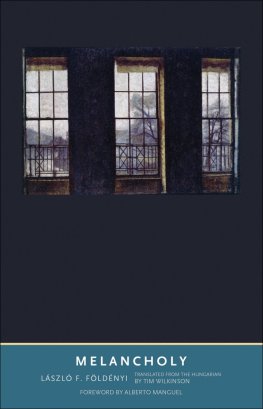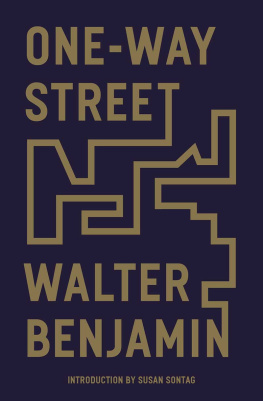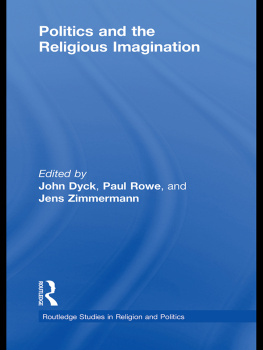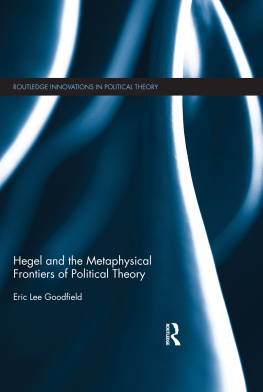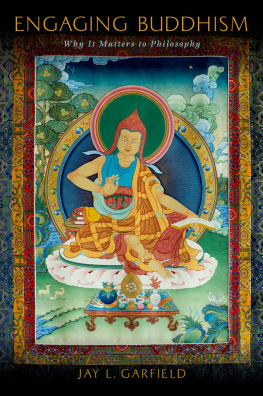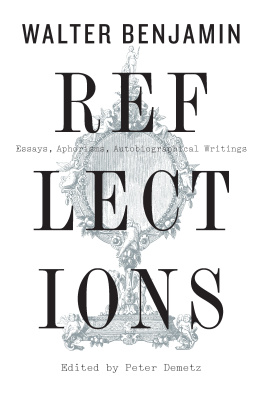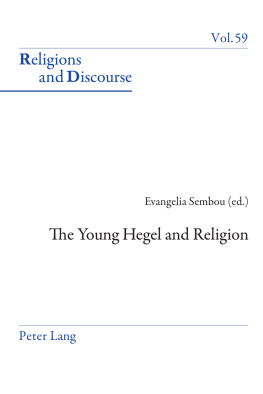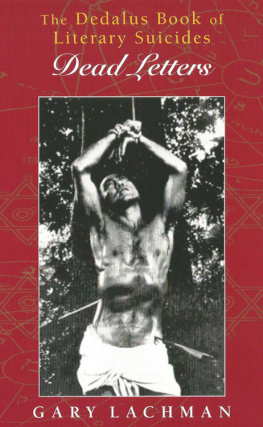Dostoyevsky
Reads Hegel
in Siberia and
Bursts into Tears
Dostoyevsky
Reads Hegel
in Siberia and
Bursts into Tears
LSZL F. FLDNYI
TRANSLATED FROM THE HUNGARIAN
BY OTTILIE MULZET

The Margellos World Republic of Letters is dedicated to making literary works from around the globe available in English through translation. It brings to the English-speaking world the work of leading poets, novelists, essayists, philosophers, and playwrights from Europe, Latin America, Africa, Asia, and the Middle East to stimulate international discourse and creative exchange.
English translation copyright 2020 by Ottilie Mulzet.
Fldnyi F. Lszl.
English-language edition published by arrangement with Eulama International Literary Agency.
Earlier versions of these essays were originally published in Hungarian.
For details, see the credits page.
The credits page constitutes a continuation of the copyright page.
All rights reserved.
This book may not be reproduced, in whole or in part, including illustrations, in any form (beyond that copying permitted by Sections 107 and 108 of the U.S. Copyright Law and except by reviewers for the public press), without written permission from the publishers.
Yale University Press books may be purchased in quantity for educational, business, or promotional use. For information, please e-mail sales.press@yale.edu (U.S. office) or sales@yaleup.co.uk (U.K. office).
Set in Electra and Nobel types by Tseng Information Systems, Inc.
Printed in the United States of America.
Library of Congress Control Number: 2019947285
ISBN 978-0-300-16749-8 (hardcover : alk. paper)
A catalogue record for this book is available from the British Library.
This paper meets the requirements of ANSI/NISO Z39.48-1992 (Permanence of Paper).
10 9 8 7 6 5 4 3 2 1
CONTENTS
PREFACE
There are more mysteries contained in the shadow of a person who walks in the sunlight than in all the religions of mankind, past, present, and future, wrote Giorgio de Chirico, sometime shortly after 1910. In his works of that period, which he termed metaphysical paintings, he grants a prominent role to the shadows cast by the monuments and the campanili on the piazzas, by the people and the columns of the arcades. And yet everything in these pictures swims in blinding sunlight; the light illuminating the spaces of these piazzas is as sharp and penetrating as the light in an operating room, where it is a question of life and death. But it is the shadows that are the main actors in de Chiricos paintings. And no matter how paradoxical it may seem, these shadows also cast their darkness on the light above. Because it is in vain that light creates the impression that it will last forever, that nothing can ever extinguish itin these images, obscurity, darkness, the shadows have succeeded in rebelling against it. Even so, they have not succeeded in eliminating light; they could not liquidate itinstead, the shadows have become its equal, emancipated.
The belief in the omnipotence of reason that illuminates all phenomenasimilar to the sunis the great inheritance of the Enlightenment. Thinking, of course, ever since humans have existed, has always tried to disperse the darkness. Earlier individuals did not cherish the illusion that here on earth they would be able to liquidate every shadow and every darkness. During the Enlightenment, however, the conviction that only time and intellectual preparation were required in order to eventually cast light upon all thingswith no dark corners remaining anywhere unilluminated by the light of reasonbecame ever more resolute. Nothing less was at stake than capturing the positions previously occupied by God. In the history of human cultures until that point, only God (or the gods) had the right to absolute autonomy. Humans could only compete for this right when they themselves had begun to consider themselves godsor, at the very least, had begun to entertain the thought that their own power was divine (that is to say, unbounded). As a result of the process of secularization of the modern age, nondivine beings (humans) began to act as gods, believing themselves, in their restricted existence, omnipotent, believing that they would never have to confront the fragile condition of their seemingly absolute power.
As with all great thoughts and aspirations, this too had its own shadow. William Blake had already written in 1791: God, so long worshippd, departs as a lamp / Without oil. Ever since the Romantic period, because of Gods absence an ever strengthening disquietude has predominated, not only in individuals but in the entirety of Western civilization. Those who sense this disquietude justifiably pose the question: What is the point of oil if there is no longer a lamp into which it can be poured? What remains to fill the place of God when God has been exiled, and history and progress have also proved undeserving of trust? How shall we practice freedom if there is no longer a transcendental shelter in the heavens above us? And if we no longer trust in a being whose blinding light can illuminate even the darkest corners, then how shall we deal with the darkness and its many shadows which have loomed continuously, ever since the Enlightenment, over our civilization? From the age of Romanticism on, if someone were to observe the vulnerability of obstinate trust in reason and historical progress, an observation exposing history as a mere construction, a mechanism of self-defensive blinding (and the protagonists of the following essays, including Dostoyevsky, Kleist, Caspar David Friedrich, Antonin Artaud, Nietzsche, and Canetti, among others, did make this observation), then at the same time the increase of that shadow could be observed; the same shadow in which de Chirico glimpsed that mystery which is a priori connected to existence itself.
When God, at the beginning of creation, created light, after the heaven and the earth, the darkness was born alongside it. It is true that Moses claims a previous existence for this when he says, Darkness was upon the face of the deep. But this was not what we call the darkness of humans. Darkness, to exist, requires light. And vice versa. Neither can be imagined without the other. Illumination existing without darkness is not a part of the human world, just as darkness without illumination is not. Moreover, the two cannot truly be differentiated from each other. If there were only darkness, all would be clear. This statement was made not by Moses but by Samuel Beckett, according to whom, because of the existence of this duality of darkness and light, nothing in human existence is clear, but all remains obscure, inexplicable.
The following essays circle around this duality. More precisely they examine the experience of inscrutability to be found in the depths of all cultural phenomena. They deal with aspects of our culture which have been pushed into the background, or have remained unobserved by us, suppressed and concealed, or exiled to the very depths of consciousness. Often they have been considered dark, although certain German Romantics designated them Nachtseite, the side of night, of darkness. And yet this discussion is not really about darkness and the night, but rather about that mysteriousness of which de Chirico and Beckett both spoke. This mystery is not far away from us, residing at some unknown distance. On the contrary, it is here, in our immediate proximity. It makes itself felt in the most ordinary daily phenomena, as there is no situation in our lives which does not contain this latency, this possibility of genuine mystery. We do not necessarily have to think of the great enigmas of birth or death; from day to day, we live among mysteries. And they occur precisely when we are most likely barely to notice them. If you love someone, the world becomes a great enigma to you. If your love is consummated, everything becomes even more enigmatic. And if you suffer disappointment in your love, then a true mystery commences, as when, in the ancient mythologies, the death of the god is repeated in a contemporary setting. What happens when I concentrate on the work of art or listen to music during a recital, or if I observe another human being, trying to grasp the essence of that persons face, or if I begin to wonder at something, if I am sunk in contemplation of the veins on a leaf, or if I simply forget myself? Or, for that matter, if I become immeasurably bored? At such times I am overpowered by the feeling that there is something incomparably greater than my own self. And without realizing it, I step out of my own self. I cross my own boundaries, and at the same time something begins to become clear. And yet this is not the light of reason, strictly segregated from darkness, but the light of a much deeper clarity. Carson McCullers called it illumination, a moment of epiphany that comes to us in a flash, as a religious phenomenon.
Next page

